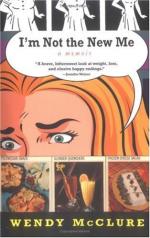But why dwell on the little book, which was only the trembling organ-pipe through which the music thrilled? Its faults have long since ceased to trouble, and its friends to elate me. Sometimes one seems to one’s self to be the least or last agency in the universe responsible for such a work. What was the book? Only an outcry of nature—and nature answered it. That was all. And nature is of God, and is mighty before Him.
Do I believe in the “middle march” of life, as the girl did in the morning, before the battle of the day?
For nature’s sake—which is for God’s sake—I cannot hesitate.
Useless suffering is the worst of all kinds of waste. Unless He created this world from sheer extravagance in the infliction of purposeless pain, there must be another life to justify, to heal, to comfort, to offer happiness, to develop holiness. If there be another world, and such a one, it will be no theologic drama, but a sensible, wholesome scene. The largest and the strongest elements of this experimental life will survive its weakest and smallest. Love is “the greatest thing in the world,” and love “will claim its own” at last.
The affection which is true enough to live forever, need have no fear that the life to come will thwart it. The grief that goes to the grave unhealed, may put its trust in unimagined joy to be. The patient, the uncomplaining, the unselfish mourner, biding his time and bearing his lot, giving more comfort than he gets, and with beautiful wilfulness believing in the intended kindness of an apparently harsh force which he cannot understand, may come to perceive, even here, that infinite power and mercy are one; and, I solemnly believe, is sure to do so in the life beyond, where “God keeps a niche in heaven to hold our idols.”
FOUR-LEAF CLOVER.
BY ELLA HIGGINSON.
I know a place where the sun is like gold,
And the cherry blooms burst
with snow;
And down underneath is the loveliest nook,
Where the four-leaf clovers
grow.
One leaf is for hope, and one is for faith,
And one is for love, you know;
And God put another one in for luck—
If you search, you will find
where they grow.
But you must have hope, and you must have
faith;
You must love and be strong—and
so—
If you work, if you wait, you will find
the place
Where the four-leaf clovers
grow.
A LEAP IN THE DARK
BY JAMES T. MCKAY,
Author of “Stella Grayland,” “Larcone’s Little Chap,” and other stories.
The Windhams and Mandisons were old neighbors, and Phil Windham had always been very much at home among the Mandisons, and especially with Mary, the oldest daughter, who was like a wise, kind sister to him. Now his own house began to break up—his brothers went West; his sisters married; his father, who was a chemist and inventor, was killed one day by an explosion. In these trying times the Mandison household was his chief resource, and Mary most of all.




